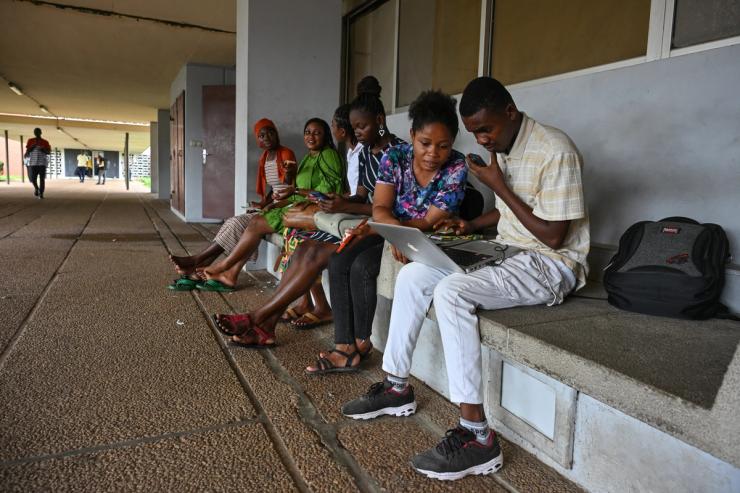The News
African universities risk being left behind if institutions fail to adapt to the growing use of artificial intelligence by students and faculty, experts have warned. The lack of formal policies on AI use in many African universities — despite its growing adoption — is a significant concern, several academics and AI researchers told Semafor.
A national survey by the American Association of Colleges and Universities, conducted late last year, found that 69% of US universities have adopted written policies about the use of generative AI tools in learning and teaching. Many African universities lack similar policies, with the notable exception of several in South Africa.
“The need for robust guidelines that balance technological advances with traditional teaching methods in African universities” is identified in a research paper on GenAI published in June by the interdisciplinary journal Digital Government. None of Kenya’s public universities, for example, have adopted a written AI policy, although some have launched AI-related classes and initiatives.
Caroline Wandiri Mwea, a researcher at Kenyatta University in Nairobi, said the lack of AI policies in many African universities had made it “hard to regulate and guarantee resourceful ways this new technology can be utilized.” Mwea emphasized that many African institutions were grappling with funding challenges that limit their ability to adapt to new technologies including AI. “What will matter in the job market is how fast we embrace new technologies to our benefit,” she said.
Know More
Gathoni Ireri, a research scholar at the Nairobi-based AI safety program ILINA, said the lack of AI policies at a national level in several countries was influencing a similar approach in higher education. The lack of unified policies in many institutions meant there was an “unequal distribution of AI use across classrooms”, she said, with individual lecturers and students deciding use-cases in many cases.
Ireri emphasized that it was important for African governments and institutions to evaluate potential risks even as they look toward AI to fuel innovation and improve outcomes in key sectors. “It would be critical to first evaluate, how do students use this?” noting that students used the technology in different ways including to collaborate and enhance traditional learning.
Step Back
Mungai wa Regina, a Nairobi-based AI researcher, highlighted research suggesting that AI tools can affect critical thinking skills, highlighting the need for relevant policies. He pointed to the chronic underfunding of many African universities affecting their research output, resulting in all but three sub-Saharan Africa universities either dropping down or stagnating in the 2026 QS World University Rankings. The rankings consider factors including academic reputation, employer reputation, and research output. Notably, the three institutions that bucked the trend — South Africa’s University of Cape Town, University of Johannesburg, and University of Kwazulu-natal — have all adopted official AI policies and invested in major AI programs over the past year.
The University of Cape Town (UCT), which rose 21 places to rank as Africa’s top university, launched its AI Research Unit (AIRU) in June last year, and this year adopted an AI framework that addresses the use of AI by students and faculty, including AI detection tools it deems unreliable.
Martin’s view
In a continent that needs to massively improve its productivity and create sufficient opportunities for young people in the global economy, the quality of education is crucial. Many students in Africa are alive to the opportunities that AI presents, and it is up to institutions and governing bodies to guide its use and integration in education to ensure the best outcomes.
The generally inadequate funding for many higher learning institutions in Africa compared to their global counterparts, a long-standing issue, is especially problematic in the AI era. Universities need the cash to support research as well as policy development and innovation programs. Allocating more public funds to higher education and research needs to be a high-ranking priority for most countries on the continent.
The View From Rwanda
Rwanda was among the first countries in Africa to introduce a national AI policy, which includes guidelines for its use in universities. But a research paper published in the Discover Education journal in June stressed that “the implementation of AI policy in the higher education sector is still a challenge,” citing connectivity difficulties by way of example.
Notable
- Following its adoption of an AI framework, the University of Cape Town announced last week that it will no longer be using AI detectors to identify AI-generated student work beginning Oct. 1. The decision, according to the university, is based on the tools’ generation of false negatives and false positives.
- Nearly 63% of students in Kenya have used generative AI for their university studies, according to a survey of 11,000 students in 15 countries published by educational services company Chegg.org earlier this year.


